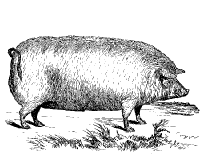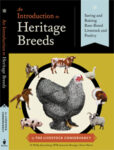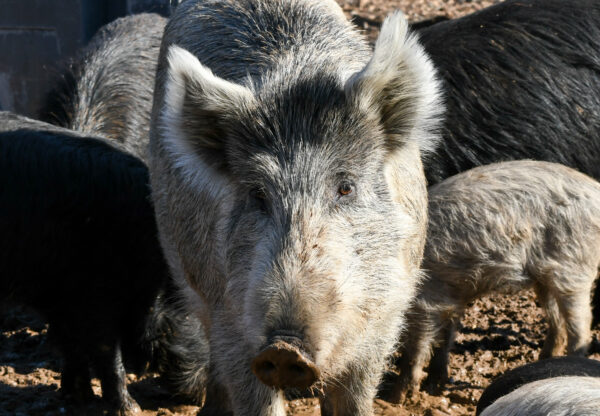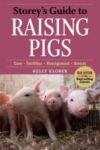
Breed Facts
Status:
Critical
Use:
Meat
Adult Weight:
Male & Female – 120-150 lbs.
Temperament:
Aggressive
Experience Level:
Intermediate-Experienced
Notes:
Has qualities that may be important in the future.
CHOCTAW
The Choctaw hog is an American swine breed that descends from Spanish stock brought to the Americas beginning in the 1500s. Native Americans, European colonizers, and a succession of others in the Southeast used Spanish hogs for over three hundred years. The modern breed’s name comes from the Choctaw tribe, with whom it has been associated for centuries. The Choctaw and other Native American tribes and their livestock migrated from the deep South to the Oklahoma Territory in the early 1800s; this began the Oklahoma Choctaw hog population. In the 1830s, the United States government forced the Cherokee, Chickasaw, Choctaw, Creek, and Seminole tribes (the “Five Civilized Tribes”) from Mississippi and Alabama to move to Oklahoma; their hogs came with them and were added to the existing population.
Existing Choctaw hogs descended from these herds and have changed little in appearance during the past 150 years. They are small, weighing about 120 lbs., and are black with occasional white markings. The ears are erect to slightly drooping. Many Choctaws hogs have fleshy wattles on each side of the neck. The toes are fused, forming a single, mule-like hoof. The combination of the distinctive hoof and wattles are consistent with the breed’s Spanish origin as these traits are often found in populations that descended from Spanish hogs. For example, Mulefoot hogs share some physical characteristics with the Choctaw hog, although the two breeds have diverged over the past century and are now distinct. Choctaw hogs are also distinct from the “Pineywoods Rooter” and other genetically-mixed feral hog populations still found in the Southeast.
The Choctaw breed was shaped by natural selection, and it is obvious that these hogs are built for survival. They have long legs and are heavier in the forequarters than in the rear, making them both fast and athletic. Although this conformation has its advantages in the wild, it does not produce a desirable market carcass.
Today, Choctaws in Oklahoma are managed as they were traditionally. They are ear marked and allowed to roam on the open range. The hogs require little care and can forage for their own food, which includes roots, plants, acorns, and berries. Periodically, the hogs are rounded up – often with specially trained dog breeds like the Catahoula Leopard hound – and are then trapped. Once captured, the young ones are ear marked and sorted. Those destined for market are confined and fed corn to increase their weight. Those not to be sold are released, and they run back into the woods as quickly as they can. People accustomed to docile farm animals are amazed at the speed and agility of Choctaw hogs, although Choctaws kept in confinement can become quite tame.
The Choctaw breed is critically rare, with a population estimated at only a few hundred animals, although their numbers have been growing. Almost all of them are found in the counties of southeast Oklahoma that were formerly part of the Choctaw Nation. There is currently no registry for Choctaw hogs.
Not many commercial opportunities are available for the breed, and lacking any economic return to encourage conservation efforts, the Choctaw faces substantial obstacles to survival as a breed. Nevertheless, the Choctaw hog is a high conservation priority because it has qualities that may be important in the future.
Did you know:
When farms and farmers face a crisis, rare livestock breeds are more likely to be lost. That’s why The Livestock Conservancy offers Emergency Microgrants year-round. As the economy tightens, off-farm jobs are lost, herds are downsized, veterinary emergencies happen, and calamities such as floods, fires, and tornadoes continue. Help us help them. Click here to support the Emergency Response Fund with your gift today.
You may be interested in…
Storey’s Guide to Raising Pigs
– Kelly Klober
$19.95

An Introduction to Heritage Breeds
– D. Phillip Sponenberg, Jeannette Beranger. Alison Martin
$19.95


